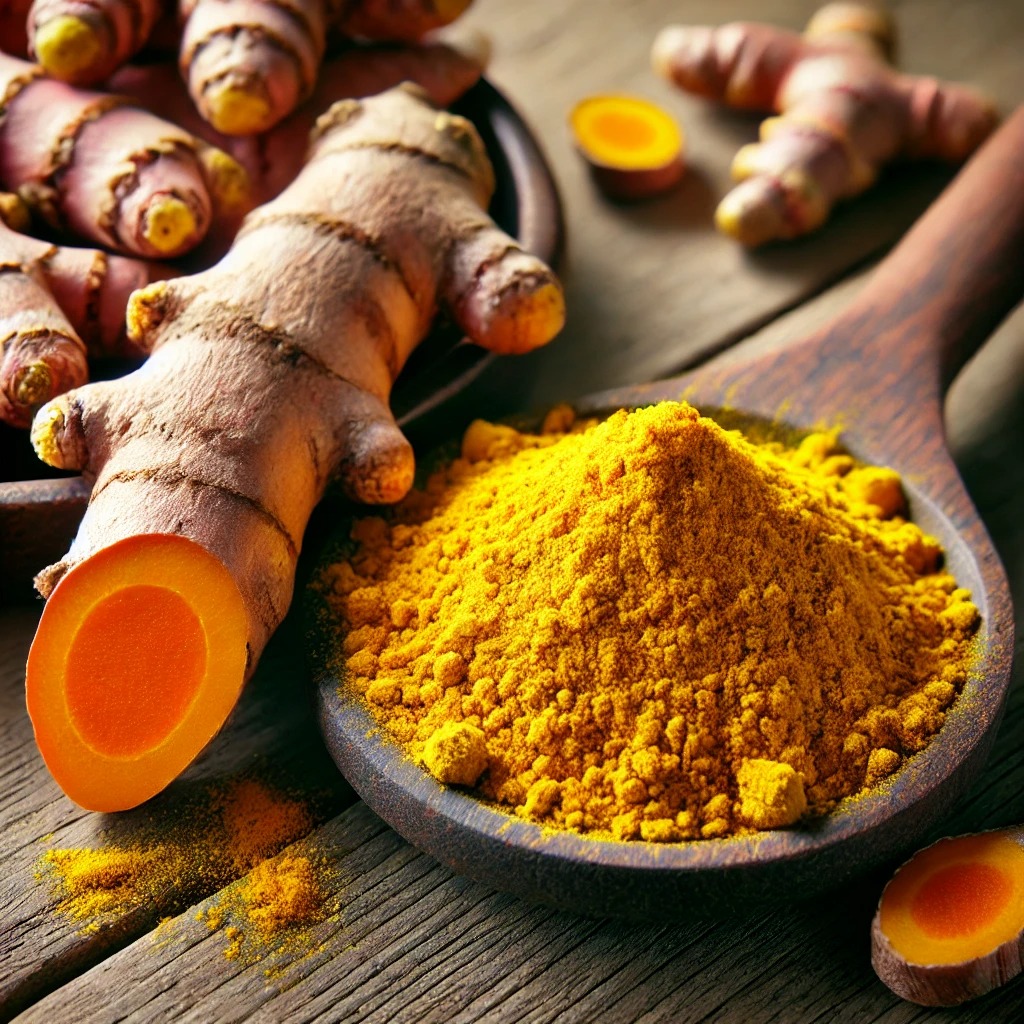Turmeric has been used for centuries in traditional medicine, particularly in Indian and Chinese cultures. It’s known as the “golden spice” not only for its bright yellow color but also for its remarkable healing properties. The potent health benefits of turmeric, however, come primarily from a compound called curcumin, found in turmeric root extract. Today, turmeric root extract has become one of the most popular supplements in the health and wellness space, touted for its anti-inflammatory, antioxidant, and immune-boosting properties.
In this guide, we’ll explore everything you need to know about turmeric root extract—its origins, benefits, uses, dosage, and potential side effects.
What Is Turmeric Root Extract?
Turmeric root extract is a concentrated form of the bioactive compounds found in the turmeric plant (Curcuma longa). While turmeric as a spice contains only 2-5% curcumin, turmeric root extract can be standardized to contain 95% curcuminoids, making it far more potent. Curcumin is the primary active compound responsible for turmeric’s medicinal effects, particularly its anti-inflammatory and antioxidant capabilities.
Turmeric extract can be found in various forms, including capsules, powders, tinctures, and liquids, making it easy to incorporate into your daily routine.
The History and Origins of Turmeric
Turmeric has its roots in Southeast Asia, primarily India, where it has been used for more than 4,000 years in Ayurvedic and traditional Chinese medicine. Initially, it was utilized as a dye due to its vibrant yellow hue, but over time, people began to understand its medicinal properties.
In India, turmeric is not only a spice used in everyday cooking but also a revered plant in religious and cultural ceremonies. It’s also been referred to as “Indian saffron” due to its deep color and is a key ingredient in curry powders. Ancient Ayurvedic texts highlight turmeric for its ability to balance the body, particularly through its anti-inflammatory properties.
Key Benefits of Turmeric Root Extract
- Anti-inflammatory Powerhouse
One of the most well-known benefits of turmeric root extract is its ability to fight inflammation. Chronic inflammation is a root cause of many health conditions, including heart disease, cancer, arthritis, and neurodegenerative diseases. Curcumin, the active compound in turmeric root extract, can inhibit various molecules that play a role in inflammation, particularly nuclear factor-kB (NF-kB), which is a key driver of chronic inflammation.
- Rich in Antioxidants
Curcumin is a potent antioxidant, which means it can neutralize free radicals—unstable molecules that can damage cells and contribute to aging and diseases like cancer. What’s more, curcumin also boosts the activity of your body’s own antioxidant enzymes, enhancing your body’s natural defense mechanisms against oxidative stress.
- Supports Joint Health
Thanks to its anti-inflammatory properties, turmeric root extract is highly beneficial for people suffering from arthritis, particularly osteoarthritis and rheumatoid arthritis. Several studies have shown that curcumin can be as effective as certain anti-inflammatory drugs in reducing joint pain and swelling, without the side effects that often come with pharmaceuticals.
- Boosts Brain Function and Reduces the Risk of Brain Diseases
Curcumin has been shown to increase levels of brain-derived neurotrophic factor (BDNF), a type of growth hormone that functions in the brain. Low levels of BDNF have been linked to brain disorders like depression and Alzheimer’s disease. By increasing BDNF, curcumin may help delay or even reverse many brain-related disorders and age-related cognitive decline.
- Improves Heart Health
Curcumin also plays a role in improving heart health by enhancing the function of the endothelium, the lining of your blood vessels. Endothelial dysfunction is a major driver of heart disease, and improving its function can lower the risk of heart attacks and strokes. Additionally, curcumin’s anti-inflammatory and antioxidant effects contribute to overall cardiovascular health.
- May Aid in Cancer Prevention and Treatment
Curcumin has shown promise in cancer research. It affects cancer growth, development, and spread at the molecular level. Studies suggest that it can reduce angiogenesis (the growth of new blood vessels in tumors), metastasis (spread of cancer), and may even help kill cancerous cells. While more research is needed, curcumin is being studied as a complementary therapy in cancer treatments.
- Helps with Digestion
Traditionally, turmeric has been used to treat digestive issues. Turmeric root extract can stimulate bile production, which may help improve digestion and reduce symptoms of bloating and gas. It’s also been used to treat inflammatory conditions in the gut, like irritable bowel syndrome (IBS) and inflammatory bowel disease (IBD).
How to Use Turmeric Root Extract
1. Capsules or Tablets
The most common and convenient way to consume turmeric root extract is in capsule form. Standardized turmeric supplements ensure that you’re getting a consistent dose of curcumin. Look for products that include piperine, an extract of black pepper, which enhances the absorption of curcumin by up to 2,000%.
2. Powder
Turmeric root extract powder can be mixed into smoothies, shakes, or tea. Some people enjoy adding turmeric powder to their cooking, though the extract form ensures higher curcumin concentration than typical culinary turmeric powder.
3. Liquid Extract or Tinctures
Liquid extracts are another highly concentrated form of turmeric and are quickly absorbed by the body. They can be added to water or juice and taken orally.
Recommended Dosage
The appropriate dosage of turmeric root extract depends on several factors, including the formulation and the individual’s health condition. However, general guidelines suggest a dosage of 500-1,000 mg of curcumin per day for overall health benefits. For specific conditions like joint pain or inflammation, higher doses may be recommended under medical supervision.
Side Effects and Precautions
Herbal extract Turmeric root extract is generally considered safe when taken within recommended dosages, but high doses or long-term use may cause some side effects. These can include:
- Gastrointestinal issues: Some people may experience upset stomach, bloating, or diarrhea.
- Risk of bleeding: Turmeric may slow blood clotting, so individuals on blood-thinning medications should consult their healthcare provider before taking turmeric supplements.
- Interference with medications: Turmeric can interact with medications, particularly blood thinners, antacids, and certain diabetes medications. Always check with your doctor if you’re on any prescribed medication.
How to Choose the Right Turmeric Root Extract Supplement
Not all turmeric supplements are created equal. Here are some tips for choosing a high-quality product:
- Standardization: Look for a product that’s standardized to 95% curcuminoids, ensuring a potent dose.
- Bioavailability: As mentioned earlier, curcumin isn’t easily absorbed on its own. A good supplement will contain piperine (black pepper extract) or other bioavailability enhancers.
- Third-Party Testing: Check for supplements that have been tested by independent labs for quality and purity.
- Organic and Non-GMO: Opt for supplements made from organic turmeric to avoid potential pesticides or contaminants.
Conclusion
Turmeric root extract is a powerful supplement that offers a wide range of health benefits, from reducing inflammation to supporting heart and brain health. Whether you’re looking to alleviate joint pain, boost your antioxidant intake, or promote overall wellness, turmeric root extract could be a valuable addition to your daily regimen.
Before starting any new supplement, it’s always wise to consult with a healthcare professional, especially if you have pre-existing conditions or are on medication. Incorporating this golden elixir into your life could be the key to unlocking better health and longevity!
Stay in touch to get more news & updates on Buzz Slash!




